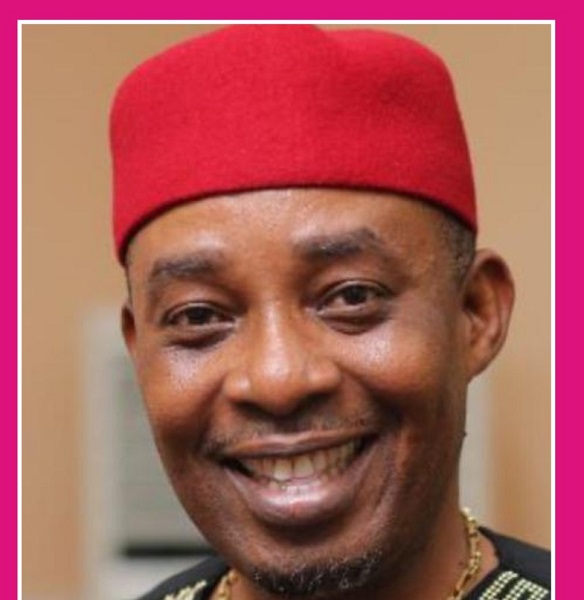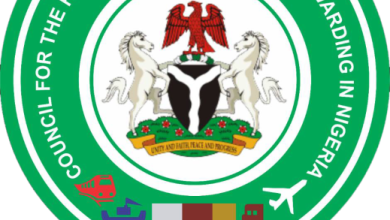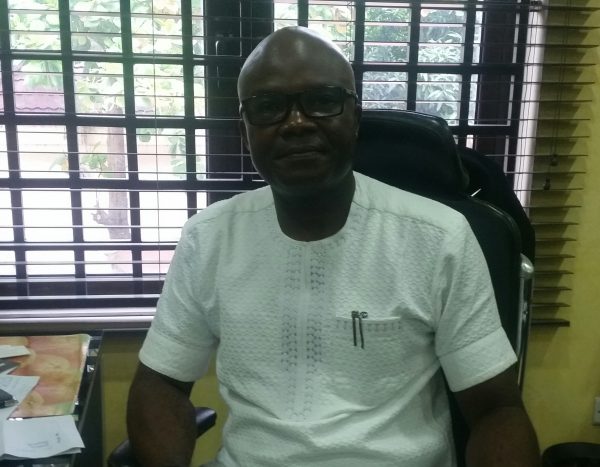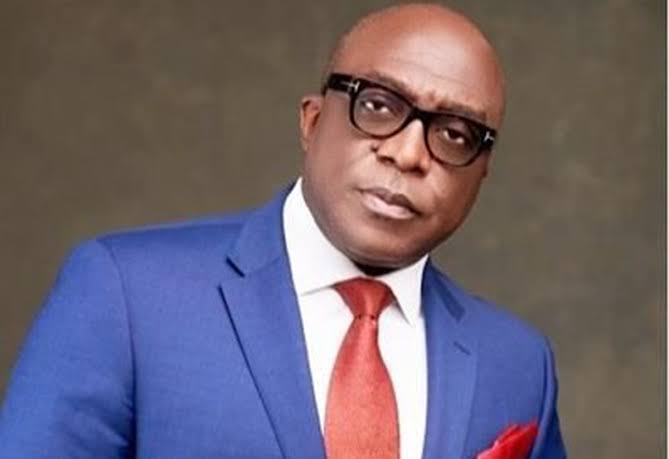Why Security Threats At Eastern Ports Are Politicized, Exaggerated – Ohaegbuchi

By Kenneth Jukpor
Mr. Uche Ohaegbuchi is the Chairman, Calabar Seaport chapter of the Association of Nigerian Licensed Custom Agents (ANLCA). He is also a fellow of Nigeria Institute of Shipping (NIS) and a fellow of Chartered Institute of Transport and Logistics (CILT) Nigeria. In this exclusive interview with MMS Plus newspaper, he speaks on an array of issues in the nation’s maritime sector with keen interest in Eastern ports activities, challenges and misconceptions. He granted this interview on the sidelines of the ANLCA Board of Trustees (BOT) elections which held in Owerri, Imo state.
Enjoy it:
At Lagos seaports, there are several challenges affecting cargo clearance ranging from dilapidated port access roads to extortion by some agencies at the ports. Do you have similar challenges at the Eastern ports and precisely in Calabar?
We don’t have any challenge with respect to the issues you highlighted and that’s because we don’t have such traffic in Calabar compared to Lagos ports. Calabar port is very quiet; in fact we’re clamoring for distribution of cargoes so that most of those vessels that anchor at the high seas for days can be diverted to Calabar so our maritime stakeholders in this area can also get busy.
Calabar port is not busy and the traffic is very low, we’re not having container vessels for now. The last time we had container vessels was in 2019. What we’re having at the moment is bulk cargo and that’s one of the reason I kept supporting this association (ANLCA), so that we can also use them to leverage cargo distribution to our port. If there is a way the association with the collaboration of Nigerian Ports Authority (NPA) and other port stakeholders could divert vessels, it will be a welcome development. Roro vessels , container vessels and the likes, could be diverted to Calabar and that they can give freight agents in the region a sense of belonging.
The biggest issue in Calabar and most seaports in the Eastern region is lack of patronage. As much as we are concerned about the congestion and logistics constraints in Lagos, every maritime stakeholder would rather wish to have that challenge than absence of cargoes.
There are several issues that are alleged to affect the Eastern Ports such as security, draft of a channel, among others. Have these problems been sufficiently addressed to encourage patronage of the ports by shippers?
We keep talking about all these things. We can talk about draft of the channel because it is a serious issue, however, on the issue security but that problem isn’t as serious as it is reported in the media. For example, with the current draft channel of Calabar port which is around 7meters, we’re having vessels of 15 000 or 17 000 MTs bringing in bulk consignment, if you divide it by 26 MT which is average tonnage of a container, you’re talking about 500 container vessels and for now we don’t have such numbers of container to come into Calabar. We can also receive vessels with 300, 200 or 150 containers so the issue of draft shouldn’t be the reason the port is not patronized because we have received vessels of bulk consignment of about 15000, 17000 MT. There is a school of thought that sees these issues as a propaganda to rubbish the ports in the region and also to frustrate the efforts the federal government and port stakeholders are making to make the port viable and busy.
Let’s talk about issue of security, is it all about politics because ship owners need to hire armed security men (mostly Navy) to escort their vessels?
Are there threats or concerns in the area? Of course, yes. Nevertheless, I’ll say the issue has been politicized because a particular group of people don’t want vessels to leave Lagos and come to the east. The truth is that there is nowhere in Nigeria today that we don’t have security challenges.
If the major issue is piracy, then we should tackle it headlong, but containers and vessels are coming in so we shouldn’t be promoting such narrative. We should be talking about equal distribution of cargoes to all the seaports. Warri is a very good port for example; Calabar where I am is one of the peaceful seaport environments in the country. It is well-designed with necessary facilities and equipment in place. The port terminal operators invested in these facilities with projection of cargo traffic and business activities to get returns on their investments. The market is available and we are not asking for much by clamouring for cargoes.
Let’s assume that we have vessels that can come into Calabar with 500 containers every month, the effect will be felt in the immediate community and the port operators will also feel the sense of belonging to a port environment. Do you know what a functional port environment does? It brings crime to the barest minimum because when you remove so many boys from the streets by providing direct and indirect job opportunities via the ports; they’re engaged gainfully with those activities from morning till evening, by the time they retire home they’re already exhausted and won’t have time to think about crime. An idle mind is a devil’s workshop. So, if there’s anything we can do to encourage port activities in the Eastern region, we shouldn’t hesitate to do it because this will help reduce crime to the minimum.
In terms of marketability, does the Eastern have that market compared to Lagos?
You know the saying that Lagos is a West African market. When it comes to commerce there are some particular goods that when you ask for it they’ll refer you to Lagos. Similarly, there are also some commodities that you ask for and people will refer you to Aba or Onitsha market. That is how businesses should be thriving. We shouldn’t centralize everything in one place and that is what Lagos is suffering from today. When I come to Lagos, I will be forced to take bike to access the ports and that’s an embarrassment to the nation. It is not that I don’t have cars, but if I try to go with my car I’ll spend hours to get to the port and it will also be another fierce battle to drive out of the Lagos ports. A port environment doesn’t work that way. Look at the accessibility of Lagos port, the evacuation corridors are so congested and that’s because they have constrained everything within Lagos ports. Remove just 10% of cargo activities in Lagos port and divert it to the Eastern ports, you’ll see the kind of effect it’ll have on Lagos ports and it will also be a positive move for the beneficiaries of the cargoes in the Eastern port environment. The market is available in the Eastern region because a sizable portion of cargoes cleared at Lagos ports are brought to the East via trucks.
The operation of Nigeria Custom Service (NCS) is one of the biggest challenges from Lagos ports to highways; Customs intercepts goods that have already been released by their officers at the ports. What’s the situation in Calabar?
This misnomer isn’t peculiar to Lagos ports or the Lagos environs because the menace is also witnessed in the Eastern region. There are multiple alerts where you have different Customs units administering a particular consignment. A consignment that was duly released from the seaport, as it’s leaving the road it’ll encounter the task force, FOU, Compliance Unit, Border Drill, among other units of NCS and everybody wants to do the same job which is multiplicity of the same assignment. These are some of the issues we are clamouring for a change at the national level. When Customs release a consignment, the appropriate thing is to let it go and this will also help in reducing congestion at the ports.
Talking about the E-Customs are you optimistic that it’ll bring the much anticipated changes?
It’s a welcome development but what we’re telling them is you can’t be talking about e-Customs without carrying the licensed agents along. As you’re training your officers you also have to train the licensed agents so that they’ll be on the same page when it comes to managing the e-Customs.
We should note that it’s the licensed agents that generate revenue. Customs just collect revenue but it’s the licensed agents that are generating it. However, in a situation where they don’t carry the licensed agents along with their plans, it’ll result to hiccups which might frustrate the whole process. I was telling someone a few days ago that we used to type bill of entry before, because I started this job over 20 years ago. There has been lots of development, today in the comfort of my room I can generate assessment on my laptop and send to my clients to pay duty. Change is one thing that is constant and when it comes we have to key in to it.
One of the biggest developments at this ANLCA BOT election today is single tenure across all board for all elected officers. What’s your take on this?
Honestly, I believe that it’s a welcome development. Single tenure reduces the heat in the polity and it also creates an avenue for everyone to come onboard because when you have a single tenure you’ll want to deliver the dividends of that particular office you’re occupying to the people that elected you. You’re motivated to put in your business because you’ve only got one shot at the position.
Contrarily, in an instance where you’re vying for second tenure you’ll want to favour some people so that you’ll gain their support to return back and while you’re doing that you’ll be stepping on some people’s toes because you’re trying to satisfy another group. This new system will create an impact because the BOT members know they have a stipulated tenure and there is no second chance.







